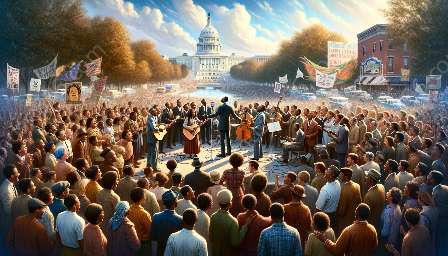Gospel music has a rich and storied history, with its roots tracing back to the African-American community and the influence of spirituals and hymns. Over the years, gospel music has evolved into a diverse and vibrant genre, attracting a wide range of talented musicians and artists. However, despite its popularity and impact, gospel musicians and artists face a unique set of challenges in the music industry.
History of Gospel Music
To understand the challenges faced by gospel musicians and artists, it is essential to delve into the history of gospel music. Gospel music emerged as a distinct genre in the late 19th and early 20th centuries, primarily within African-American communities in the United States.
During this time, gospel music served as a means of expressing faith, hope, and resilience in the face of adversity. It drew inspiration from spirituals, hymns, and the rich musical traditions of the African-American community. Notable figures such as Thomas A. Dorsey, Mahalia Jackson, and the Staple Singers played pivotal roles in popularizing and shaping gospel music.
As gospel music gained widespread recognition, it transcended its religious and cultural origins to become an influential force in the music industry. Its impact is evident in various musical genres, from soul and R&B to contemporary Christian music.
Challenges Faced by Gospel Musicians and Artists
Despite the enduring popularity and significance of gospel music, artists in this genre encounter several challenges in the music industry. These challenges can encompass various aspects, including artistic expression, commercial success, and industry dynamics.
1. Artistic Expression and Authenticity
Gospel musicians often face pressure to balance their artistic expression with the expectations of their religious audience. They must navigate the delicate balance of staying true to their faith while also appealing to a diverse and secular audience. This challenge requires artists to maintain authenticity in their music while broadening their appeal to reach a wider audience.
2. Commercial Viability and Recognition
Unlike mainstream pop or rock artists, gospel musicians may struggle to achieve the same level of commercial success and recognition. The industry's focus on mainstream genres can overshadow the talents and contributions of gospel artists, making it challenging for them to secure widespread visibility and acclaim.
3. Industry Dynamics and Opportunities
Gospel musicians and artists often face limited opportunities within the industry, including access to mainstream platforms, media coverage, and performance spaces. This scarcity of opportunities can hinder their growth and exposure, thereby impacting their ability to expand their fan base and reach new audiences.
4. Financial and Resource Constraints
Many gospel musicians and artists face financial and resource constraints, which can hinder their ability to produce and promote their music effectively. From recording and production costs to marketing and touring expenses, the financial barriers can pose significant challenges for emerging and independent gospel artists.
Impact and Evolution
Despite these challenges, gospel music continues to have a profound impact on the music industry. Its enduring influence is evident in the crossover success of artists such as Kirk Franklin, Mary Mary, and Tasha Cobbs Leonard, who have transcended genre boundaries and achieved widespread acclaim.
Moreover, the evolution of gospel music has given rise to innovative collaborations, fusions with other genres, and creative expressions that challenge traditional norms. The genre's resilience and adaptability have enabled gospel musicians and artists to overcome obstacles and carve out their unique spaces in the industry.
Conclusion
Gospel musicians and artists face a range of challenges in the music industry, stemming from artistic, commercial, and industry-related factors. Despite these obstacles, the enduring legacy of gospel music and its impact on the music industry is a testament to the resilience and creativity of dedicated artists. As the genre continues to evolve and diversify, the challenges faced by gospel musicians serve as a reminder of the importance of recognizing and supporting the diverse voices within the music industry.




































